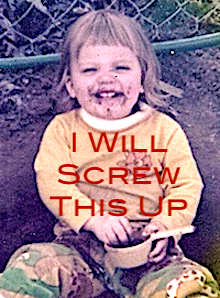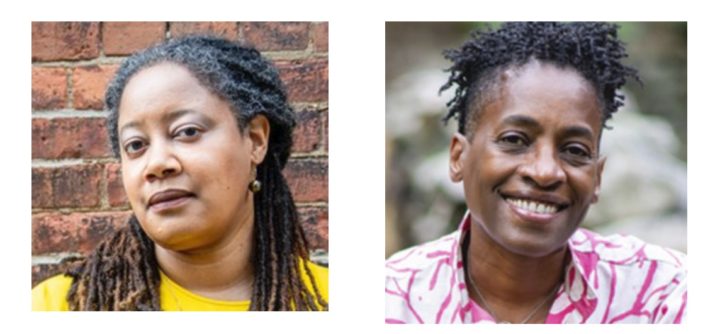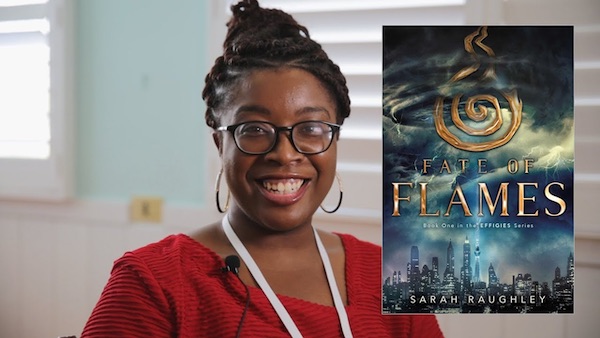Origin Tales, Geniuses, and the Fate of Flames
A MiddleWeb Blog

I Will Screw This Up is a play on a quote from the refreshing, tough love, straightforward writing of Ijeoma Oluo’s wonderful book So You Want to Talk About Race. (The exact quote is: “You are going to screw this up royally. More than once.”) This is correct. And beyond this, the sentiment is an excellent corrective for any kind of overwrought perfectionistic white-tears-prone lady such as myself.
So there’s that. But there’s also a deliberate step away from my original blog name, “The ELA Ally.” I wanted something that more clearly showed my status as a willing-to-learn neophyte in issues of equity, something that could not be misinterpreted as performative.
Tricky, though, of course. How do I humbly and quietly shut up and do the work when my work, a priori, involves speaking? Involves the public eye? Isn’t writing a blog with equity themes as a white person in the first place performative? Isn’t *writing* performative?
I don’t think that’s a foregone conclusion, actually. What I *do* think, though, is that white writers writing about equity, and any white artist whose art functions by being public, by being shared in the commons – therefore has a unique responsibility to use that platform with the utmost of care. To perform without being performative. And I think the litmus test of public writing on equity has something to do with whether its public nature is incidental to your message, or whether it is driving it.
This involves a tremendous amount of self-knowledge – to know whether what you are writing is either primarily for the sake of equity, or the sake of self-absolution. I have not figured this out and suspect the project of doing so will take my lifetime and beyond.
Hence, “I Will Screw This Up.” And that’s the origin story of the new blog name.
Two Geniuses Receive the Genius Award
Meantime, and far, far, more importantly: multiple Hugo Award winner NK Jemisin and a writer redefining children’s and young adult literature, Jacqueline Woodson, are 2020 MacArthur Fellows. (See all the new recipients here.)
YA Author Sarah Raughley
And finally, this past week I finished Fate of Flames by Sarah Raughley, the first in her Effigies Trilogy. Raughley hails from Canada, and the third and final book in the series (Legacy of Light) was a YA Fiction finalist in the 2019 Aurora SF&F awards. It’s worth quoting her Simon and Schuster author blurb in its entirety:
Sarah Raughley grew up in Southern Ontario writing stories about freakish little girls with powers because she secretly wanted to be one. She is a huge fangirl of anything from manga to scifi/fantasy TV to Japanese role-playing games, but she will swear up and down at book signings that she was inspired by Jane Austen. On top of being a YA writer, Sarah has a PhD in English, which makes her doctor, so it turns out she didn’t have to go to medical school after all.
The freakish girl in FOF is Maia, whose world is populated by huge human-eating monsters called Phantoms that materialize randomly out of thin air, and are only kept in check enough to allow some kind of civilization to thrive by advanced technology and four “Effigies” – teenage girls who hold the power to move the four elements of the universe: earth, water, wind, and fire. Maia has just discovered that she has become, to her shock, the Effigy of Fire.
If you’re at all familiar with the anime series “Avatar: The Last Airbender,” then you’ll recognize the homage the book pays to it. You’ll also notice a deft continuation of the realistic emotional spin the Marvel world pioneered in handling its superheroes.
None of the Effigies get along, all of them have dysfunctional pasts and/or heavy PTSD, and the organization which oversees the Effigies,The Sect, has its own weird internal secrets which (in time-honored trilogy tradition) are not in any way resolved by the end of this first book.
The book’s prose, premise and voice (a thoroughly authentic, nerdy, shaky-on-her-feet first person Maia) would be captivating to any tween reader, but as a reviewer I was most entranced by the contrast in the way Raugley handles race, versus Tomi Adeyemi’s Children of Blood and Bone.
The foundation of Adeyemi’s work in CoBaB is both literally and metaphorically about race; her world-building is rooted in West African traditions and heritage, and it is abundantly clear from the get go that every character is one of color. In FOF race isn’t exactly rendered invisible – the cast of main characters is rigorously racially diverse – but neither does race figure into the story in any but the most glancing of ways.
In a book rich with physical descriptions of its characters, for example, I noted no more than four sentences which gave us any clue that Maia was anything but white. It was very interesting, and I am tempted to say it is deliberate.
Why? My theory is that Raughley wanted to write a gripping book in which race was normalized in Western society: present and accounted for, but not unique, and certainly not a major plot point. I love this in the way I love seeing more and more POC’s in our commercials, as our news anchors and show hosts, and on the covers of our magazines.
Racial diversity should be the mindless air we breathe. I do wonder if later in the FOF series a more overt racial metaphor comes into play – it shouldn’t escape the reader that the Phantoms first appear in 1865, precisely at the end of the American Civil War – but this remains, at the moment, to be seen.
So Fate of Flames is not, for lack of a better phrase, literary affirmative action. But should it be? I’m inclined to say no. I honor the creative approach – and the high quality – of FOF as one of many that lifts up and celebrates our kids of color.
I’m looking forward to finishing the trilogy.
































